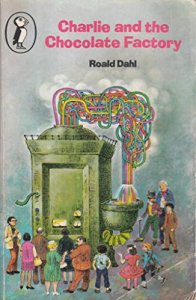
I haven't done 6 degrees post for a couple of months. In fact, I haven't done a great deal of any writing for a couple of months. I always seem to be drowning in stuff to do, whilst never actually achieving anything. I think I need a holiday. Or perhaps I just need this month's starting book: Wintering by Katherine May. It's about rest, repair and embracing the gloom of winter to prepare for your next 'spring'. Sounds like I should give it a read.
I must admit that when life gets crazy or difficult, I tend to fall back on children's books. They are the perfect mix of nostalgia and comfort, and require very little effort. So this month's 6 degrees seems to have turned into a kidslitfest, and an appropriately wintering one at that...
The first book I thought of was the supremely wintery and utterly brilliant The Dark is Rising by Susan Cooper. This was one of my all time favourite books when I was a kid, and I have fond memories of my Mum reading it to me in front of a real coal fire. I don't have such fond memories of having to go to the outhouse to fetch more coal, but we won't go there. Cooper apparently wrote it whilst sitting on a beach somewhere sunny, so it’s even more impressive that she manages to conjure up the winter so vividly.
I haven’t read the book in a long time, but I’m pretty sure that Herne the Hunter puts in an appearance at some point. Herne is a local folklore legend said to haunt Windsor Forest and Great Park in Berkshire. He has antlers growing from his head and rides about on a horse generally being spooky and tormenting cattle. Windsor is actually quite close to Dorney, where Susan Cooper grow up (and where The Dark is Rising is set), so she more than likely grew up surrounded by stories of Herne.

As someone from the North, who very much didn’t grow up with stories of Herne the Hunter, I first came across him in the wonderfully wintery and absolutely bonkers TV adaptation of John Mason’s The Box of Delights. I’ve never read the book, but I can still recite large swathes of the dialogue from the show, which we watched (on our trusty taped from the TV VHS copy) every Christmas. It was apparently the most expensive children’s TV show made by the BBC when it was released in 1984 because of all the special effects (which probably look fairly pants nowadays). I really wanted to introduce it to my boys, until I remembered that it makes almost no sense whatsoever. I think you had to be there. Anyway, maybe I'll get round to the book someday.



One of the recurring phrases of The Box of Delights is “The Wolves are running”, which of course reminds me of The Wolves of Willoughby Chase. Joan Aiken’s 1962 novel is set in a sort of alternative history universe in the early 19th Century where King James the 3rd sits on the throne and there are wolves running loose in the countryside. What I really liked about the book is that though there are real wolves in the story, the wolves of the title are really the villainous Miss Slighcarp and Mr Grimshaw, who send the children of Willoughby Chase off to an orphanage in a plot to get hold of Sir Willoughby’s fortune. It was an entertaining read, as I remember, and I’m currently working my way through the next in the series – the brilliantly titled Black Hearts in Battersea.
Willoughby Chase leads me to The Willoughbys by Lois Lowry. I haven't actually read this one, but was introduced to it after my boys told me I HAD to watch the movie. Usually, their promises that a movie is 'really good' leave a lot to be desired, but this time they were completely on the money. It is basically about a family of children whose parents loathe and neglect them, so they come up with a plan to send their folks off on a sort of deadly adventure holiday, in the hopes that they might orphan themselves. I won't tell you what else happens, except to say that it involves a flying machine, a cat and a sweet factory. And a very snowy mountain.


Neglected, starving children; selfish adults; and a candy factory? Why does this sound familiar? Lowry definitely borrows from and parodies a number of children’s books in The Willoughbys, and Roald Dahl does not escape.
I’ve always thought of Charlie and the Chocolate Factory as quite a wintery book – I'm pretty sure Willy Wonka opens the factory on February 1st, and think at one point Charlie's family starts to starve, the snow starts coming in the roof, and his Dad (or is it Charlie?) scrapes a few pennies together by shovelling snow.

Another Charles who undoubtedly had to shovel a lot of snow was Charles Ingalls, father of Laura Ingalls Wilder. It has been a very long time since I read The Long Winter, but I do remember feeling quite tense all the way through, as the townspeople nearly starve during the seven month blizzards of 1880-1881. The Ingalls family eventually celebrate their Christmas in May following the long winter - when they can finally get their supplies through. There is something so wonderful about the Little House books; the slower pace of life, the way that Laura appreciates all the little things more because she has to wait for them.
And so we end with a book about surviving the winter, and holding on to the hope that the spring will come around eventually. Fitting.
I hope you have enjoyed this 6 degrees 🙂 If you did, go read some of the previous editions.